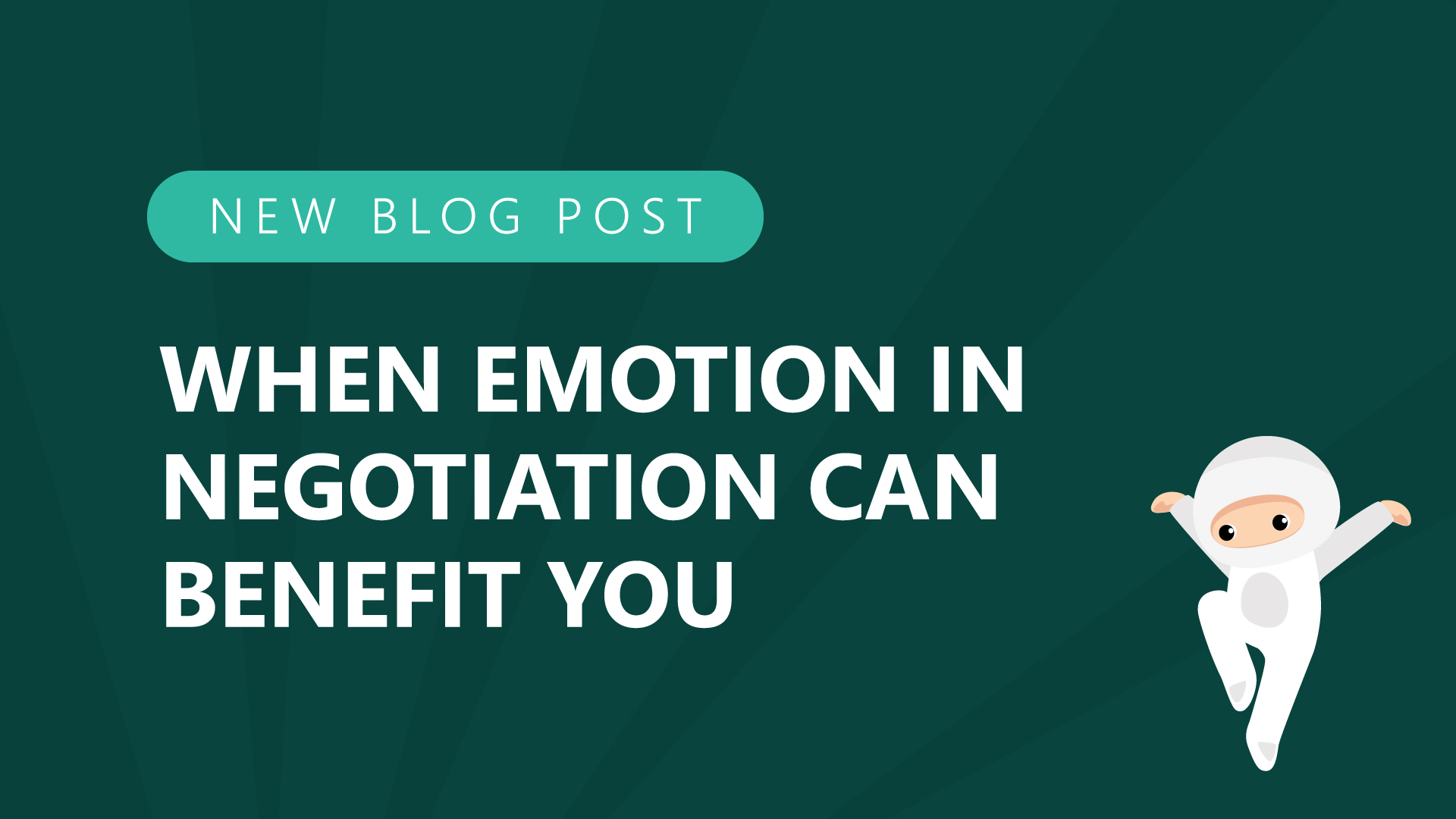The use of emotion in negotiation often receives a negative connotation. And for good reason—when emotion clouds your judgment, it can be impossible to negotiate. Sometimes you end up losing the deal entirely. However, when you can help your buyer focus on emotion over logic—it can be a gamechanger in the sales process.
In a past episode of the Negotiations Ninja podcast, Tim Kintz talks about how car salesmen can be more effective at their jobs. He points out that your conversation with a customer must always start on what they want, not what you can get.
When emotions should be more important than logic
Everyone has gone out and bought a car. Tim points out that there is always an emotional part of the deal and a logical part of the deal. When you go to a dealership, you’re thinking things like:
What make and model do I want? What color do I want the exterior to be? Do I want to get the black or do I want the gray interior? Do I want to get the panoramic sunroof?What about heated seats? Do I get all the bells and whistles?
Tim emphasizes that your job as a salesperson is to get the customer to their peak as long as you can. This is when you want to embrace emotion in negotiation. Because as soon as you sit down to negotiate price, it becomes a logical negotiation. It shifts from how the customer feels about the car to being all about the payments, the discount they can get, and what the payments will be.
So how do you help customer’s verbalize what they want?
Tim believes that you must begin with a pattern interrupt. You cannot do what a typical salesperson would do. So what do you do instead? Make it about the customer when they first walk in. Start by lowering their guard. Find out what they like about their current car.
Next, find out what they don’t like about it, what they want out of their next car, and the type of research they’ve done. What are their compelling reasons for why they really need a vehicle? All of those wants and desires floating around in their minds?
You need to get them to verbalize those wants. The easiest way to do that is to master asking open-ended questions—and listening intently to their answers.
You should build-in removable objections
A negotiation hinges on removable objections. A removable objection is something that you can put into the deal that you can afford to take out. This concept can apply to the buyer or the seller. For example, Tim and his wife invest in rental houses. When they go to purchase a house, he asks for additional items such as an allowance to add a fence or replace the carpet. Sometimes he’ll ask for appliances to be included.
The reality is, he doesn’t want any of those things. They aren’t deal-breakers. But every time he gives up one of those items, it becomes a win for the seller. So a removable objection is simply putting things into the deal that you can actually afford to take out.
For a car salesman, that means you start negotiating with the worst financing terms and the highest percentage of cash down. Tim uses the example of a 48-month financing agreement with 20% down. You can always extend the lease to 60 or 72 months. You can always decrease the down payment amount from $7,000 to $3,000. But you can’t build it back up. So if you place the focus on the emotion in negotiation first and then segue into price negotiation at the end, it tends to be a win-win for everyone.
Negotiate out of inspiration—not desperation
Tim shares that too often, salespeople are afraid of losing a deal more so than they’re inspired to make the deal. He emphasizes that you cannot let fear paralyze you. John F. Kennedy said: “Let us never negotiate out of fear. But let us never fear to negotiate.”
You can’t be afraid to embrace useful emotion in negotiation. Emotions can be a powerful sales tool when flipped so that the emotions are spilling out of the customer—not you.
To hear more of Tim’s sales negotiating tools, tactics, and strategies, listen to episode 144 of the Negotiations Ninja podcast!

